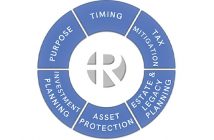Are your file cabinets overflowing? Are you awash in a sea of old checks, bank statements and pay stubs? Get organized with a plan that purges the unnecessary and ensures you’ve saved what you need to keep the IRS happy should they come calling.
While it’s tempting to hang onto every piece of paper in case you need it, there are documents you can go ahead and get rid of say financial planning experts at the Oregon Society of CPAs. Reducing that burden will help you be more organized with the documents you do need to keep.
Why Am I Keeping this Stuff Anyway?
There are many reasons to keep records. In addition to tax issues, you may need to keep records for insurance purposes or for getting a loan. Good records will help you identify sources of income, keep track of expenses, prepare your taxes, support your tax return, and keep track of the “basis” of your property (the actual cost of your home and any improvements).
What to Keep, How Long to Keep it
IRS Publication 552: Recordkeeping for Individuals is available on the IRS website and describes basic records you should keep to prove your income and expenses. You can use it along with the suggestions in this article to create your own “Record Retention Plan.” It can be a simple document – a checklist – of all the different kinds of paperwork you have and your decision about how long to keep each type.
Copies of tax returns. Keep these as part of your tax records. They can help you prepare future returns, and you will need them if you file an amended return. Keep copies of your tax returns for six years.
Year-end mutual fund and brokerage statements. Keep the year-end versions for at least three years after the due date of your tax return. If you are self-employed and, when you prepared your tax returns you owed the IRS money, you should keep all your records at least six years. That’s how long the IRS has to come back to conduct an audit. Some financial planning experts advise self-employed workers to keep all financial records for at least six years.
Cancelled checks, old receipts. Keep these for three years after the date of your return, and then it’s safe to get rid of them. But if you’re self-employed, keep your receipts for at least six years.
Receipts for major home improvements. Hang on to receipts for major home improvements. These should be kept until the property is sold – they might be needed in order to show the actual cost of the home in some tax situations. They may also come in handy if you want to show potential buyers how much you’ve spent to upgrade the property.
Bank records. Go through your checks each year. Set aside and retain those related to your taxes, business expenses, home improvements and mortgage payments according to your record retention plan. You should keep all bank records for at least a year.
Loan documents. When a loan is paid off you can get rid of the documents, but make sure you receive the official title or deed first.
Receipts for big ticket items. Receipts for jewelry, rugs, appliances, antiques, cars, collectibles, furniture, computers and other expensive items should be kept in an insurance file for proof of their value in the event of loss or damage.
Put These in a “Forever” File
Retirement documents. These include IRA contribution records. Keep the records indefinitely to prove that you already paid tax on this money when the time comes to withdraw.
Stock and fund purchases records. Keep these for as long as you hold those investments.
Life insurance. Policy documents should be kept until the terms are fulfilled. This means that you should keep these until you die (or until the term ends if you have term life insurance).
Defined benefit plan documents. These should be kept forever, even if you no longer work for the company.
Estate planning documents. Your will – you do have a will, don’t you? Powers of attorney, trust agreements and similar legal agreements – all are “forever” documents.
Another Form of ‘Forever’
The IRS has been accepting “paperless” records such as back statements and other records sent via email since 1997. If you are technically savvy and have a good plan for saving and backing up your personal data, this may be a good route for you. Use a scanner to make electronic copies of paper documents. Be aware, however, that electronic records must be carefully indexed, filed and managed. The IRS also recommends this as “an outstanding way to secure financial records” in the event of a natural disaster such as a flood or hurricane.
Shred It
Don’t worry about hanging onto the following:
• ATM receipts and bank deposit slips. Once you’ve matched them up with your monthly statement, let them go.
• Paystubs. Shred as soon as you receive your W-2 for the year
• Paper copies of your credit card bill (unless needed for tax purposes)
• Utility, phone and cable bills. You can ditch these as soon as your next bill confirms payment. However, don’t throw these away if you are self-employed and need these records for tax deductions.
Shredding is the best option to keep account numbers and other information safe from prying eyes and identity thieves. Any long-term documents should be kept somewhere secure, such as a fire safe box, where they cannot be ruined by flood or fire.
Dollars & $ense is a regular column on personal finance prepared and distributed by certified public accountants from the Oregon Society of CPAs (www.orcpa.org).




